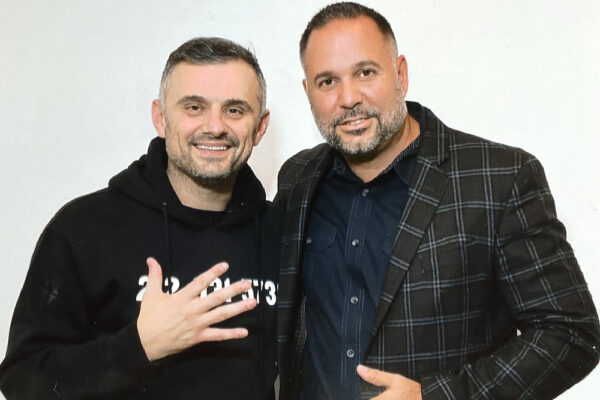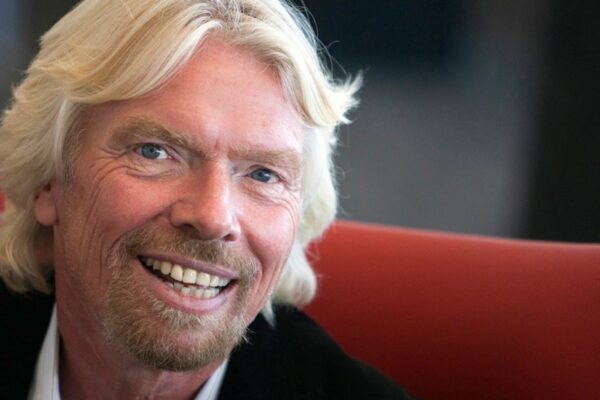Hi guys, you’re young entrepreneurs who just started a business. What is the business about?
Luke: Our business is a service that meets tradespeople with customers in the home development market.
What makes it different from other online marketplaces?
Daniel: There are similar websites out there, but we try to be as helpful and fair as we can, and we do this by charging a low membership price and no costs at all on top of this. We also offer high levels of customer service.
 Who is the typical customer?
Who is the typical customer?
Luke: Our customers are tradespeople who pay a small annual fee to be registered and included in our database. However, our other target customer is homeowners that are looking to improve or repair areas in their home. We don’t take a fee from the site customers, but we still view them just as important.
Are you targeted in a specific business area?
Daniel: No, not really, we want to be as open as we can. We currently target 42 different trade areas and are aiming to expand as opportunities arise.
What’s the process of starting a business for young entrepreneurs like yourselves? How do you find out how things work in the business world if you never worked before?
Luke: I actually started a small web design business just before we started ManyQuotes, but this opportunity was too good to turn down, so I quickly moved on. I guess it is hard as everyone can be taught business theories, and there are guides to setting up online, but you don’t actually understand it until you actually go out and do it. Obviously, there will always be things you don’t understand – but if you just go ahead and try, then there will be someone who points out how to correct where you have gone wrong in setting up.
Daniel: For me, it’s good to have Luke that studied Business at school and knows where to find what we need to know on the Internet.
How did you find the partnership and make sure it’s the right fit? Is it solely based on the personal relationship when you are young?
Daniel: Having worked together before in a part-time job, we both know that we get on well and work together. We both share similar aims and aspirations for the future, so that definitely helps.
Luke: I think as long as you know that you can get along with the partner and that you share the same passion for succeeding as each other, any partnership can work.
How did you outline the technical requirements for the marketplace? Did you make a list of features or looked around at the competition?
Luke: A bit of both, really. I had planned the website on paper and then looked at what competitors were doing. We wanted to improve things that we believed the competitors were doing wrong or could be doing better.
And how did you get to the development of the platform? Did you pay someone to build it for you, or you made it yourself?
Daniel: As Luke said earlier, he already worked with the web design for a short period, so he just got on and made the site. As time progresses, we will try to improve the site where we see fit.
You told me you first had to convince your family. How did this go?
Luke: I think families are always skeptical, especially when it comes to taking risks such as ignoring further education and spending large sums of money. However, when you produce realistic or even pessimistic goals for the income of the company – they are soon convinced and even suggest ways to improve or expand.
What if something goes wrong and you fail in the long term. Any disaster plans?
Daniel: Failure is not an option. No, no, I’m joking – but seriously, we can’t see this failing. If things do go wrong, then we have to work ten times harder to put it right again. We aim to grow organically, so we shouldn’t get in too much trouble financially – unless a venture capitalist offers us a ridiculous amount of money for a small share in the business!
What about the legal part? How did you learn about the requirements to run a business?
Luke: The Internet is pretty useful – you can usually find what you are looking for somewhere. Sometimes it can be frustrating looking and getting nowhere, but eventually, if you are persistent, you can find what you are after.
You quit school to have the business running. Do you think this is the best way to do it for every teen wanting to start a business, or that’s just the best way for you?
Luke: It’s not that I quit school – I just chose not to take up my place at University. I think getting an education is always important, which is why I stayed in education until I was 18 and got some good qualifications. For me, spending a lot of money on University fees was not an option when I knew I wanted to start a business and knew that I needed the money for that. I believe that you are born with the qualities to run a successful business – it’s just time to find out if I have those qualities.
Daniel: I still have a few months left at school, so for the minute, my input is limited, but we both know that education is important. Once I’m finished, the commitment level can go up.
What’s your typical working schedule, and how a workday goes?
Luke: At the moment, work schedules are extremely varied. I sort of taking each day as it comes; what we’re finding is that a lot of people sign up after they finish work and have eaten – so most days I work for about five hours in the morning and then return to work at about 7.30pm and work until 10 or 11 o’clock. Most days, at the moment, I am looking for marketing opportunities and working out how much each advertising campaign would cost per view. I contact Daniel if I have concerns or something that needs more than one of us to do, and he is usually available, and we can get it sorted.
What is the most difficult part of starting a business at your age?
Daniel: Like any business, it’s cash flow meaning that we can’t go getting into debt. As we’re younger, it’s making people understand that it is a serious business because it doesn’t look like we have the experience, and we are out to prove them wrong. Raising capital has been a lot harder as well because we are young – we don’t have savings and can’t take out loans. Luckily, our biggest expenses at the moment are petrol and car insurance, and we don’t have a mortgage to look after.
Luke: I think firstly it is money. However, if you have a good business idea and can prove it will work, then you will find ways around it eventually. We had a very small start-up budget of £2,500 and needed to buy a good laptop for this, design a website and get web hosting and domains, and get our name out there. It’s all about being innovative and using your money wisely. Another difficulty I think is what people say; there are always going to be people who criticize you – especially people of the same age. We’ve learned to deal with it as we know that we are getting further than them at the moment.
Any plans for the future?
Luke: We have some ideas for expanding the business and diversifying, but we are keeping that secret!
Daniel: We both share similar ideas for businesses in the future – I think we will work together on more projects and also do a few on our own. Overall, success is our main plan for the future.




